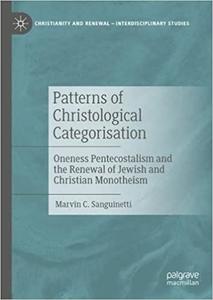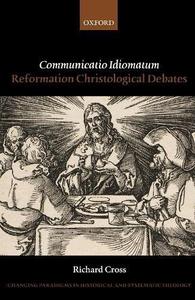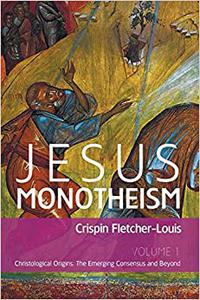

E-Books → Patterns of Christological Categorisation Oneness Pentecostalism and the Renewal of Jewish and Christian Monotheism
Published by: voska89 on 9-04-2023, 17:45 |  0
0

Free Download Marvin C. Sanguinetti, "Patterns of Christological Categorisation: Oneness Pentecostalism and the Renewal of Jewish and Christian Monotheism "
English | ISBN: 3031258746 | 2023 | 290 pages | PDF | 6 MB
This book focuses on Christological-Monotheism, an underexplored area which combines two disciplines of theological appraisal often addressed as separate subjects. Christological-Monotheism is underexplored in the literature, and even more underexplored are interpretations of Christological-Monotheism from the perspectives of Christian voices within the "Oneness Pentecostal" faith tradition. Oneness Pentecostalism offers opposing perspectives to what is considered 'fixed orthodoxy' within the Christian faith traditions: i.e., its views differ on doctrines relating to the nature of God and Christ from accepted norms. This project seeks to include various Oneness Pentecostal interpretations to commonly held perspectives, and explore what such might look like when juxtapose with Christian orthodoxy. Moreover, it rereads perspectives about the relationship between God and Christ offered by both traditions in the contexts of earlier contributors to Christian history, all the way to the Second Temple Jewish periods, and includes similar patterns exposed by various groups/scholars along this trajectory.
E-Books → Communicatio Idiomatum Reformation Christological Debates
Published by: voska89 on 25-03-2023, 21:33 |  0
0

Free Download Communicatio Idiomatum: Reformation Christological Debates By Richard Cross
2019 | 320 Pages | ISBN: 0198846975 | PDF | 2 MB
This study offers a radical reinterpretation of the sixteenth-century Christological debates between Lutheran and Reformed theologians on the ascription of divine and human predicates to the person of the incarnate Son of God (the communicatio idiomatum). It does so by close attention to thearguments deployed by the protagonists in the discussion, and to the theologians' metaphysical and semantic assumptions, explicit and implicit. It traces the central contours of the Christological debates, from the discussion between Luther and Zwingli in the 1520s to the Colloquy of Montbeliard in1586.Richard Cross shows that Luther's Christology is thoroughly Medieval, and that innovations usually associated with Luther-in particular, that Christ's human nature comes to share in divine attributes-should be ascribed instead to his younger contemporary Johannes Brenz. The discussion is highlysensitive to the differences between the various Luther groups-followers of Brenz, and the different factions aligned in varying ways with Melanchthon-and to the differences between all of these and the Reformed theologians. By locating the Christological discussions in their immediate Medievalbackground, Cross also provides a comprehensive account of the continuities and discontinuities between the two eras. In these ways, it is shown that the standard interpretations of the Reformation debates on the matter are almost wholly mistaken.
E-Books → Jesus Monotheism Volume 1 Christological Origins The Emerging Consensus and Beyond
Published by: voska89 on 19-11-2022, 04:04 |  0
0

Crispin Fletcher-Louis, "Jesus Monotheism: Volume 1: Christological Origins: The Emerging Consensus and Beyond"
English | 2015 | ISBN: 1620328895 | PDF | pages: 388 | 1.6 mb
This is the first of a four-volume groundbreaking study of Christological origins. The fruit of twenty years research, Jesus Monotheism lays out a new paradigm that goes beyond the now widely held view that Paul and others held to an unprecedented "Christological monotheism". There was already, in Second Temple Judaism and in the Bible, a kind of "christological monotheism". But it is first with Jesus and his followers that a human figure is included in the identity of the one God as a fully divine person. Volume 1 lays out the arguments of an emerging consensus, championed by Larry Hurtado and Richard Bauckham, that from its Jewish beginnings the Christian community had a high Christology and worshipped Jesus as a divine figure. New data is adduced to support that case. But there are weaknesses in the emerging consensus. For example, it underplays the incarnation and does not convincingly explain what caused the earliest Christology. The recent study of Adam traditions, the findings of Enoch literature specialists, and of those who have explored a Jewish and Christian debt to Greco-Roman Ruler Cult traditions, all point towards a fresh approach to both the origins and shape of the earliest divine Christology.

